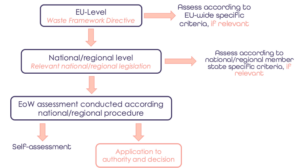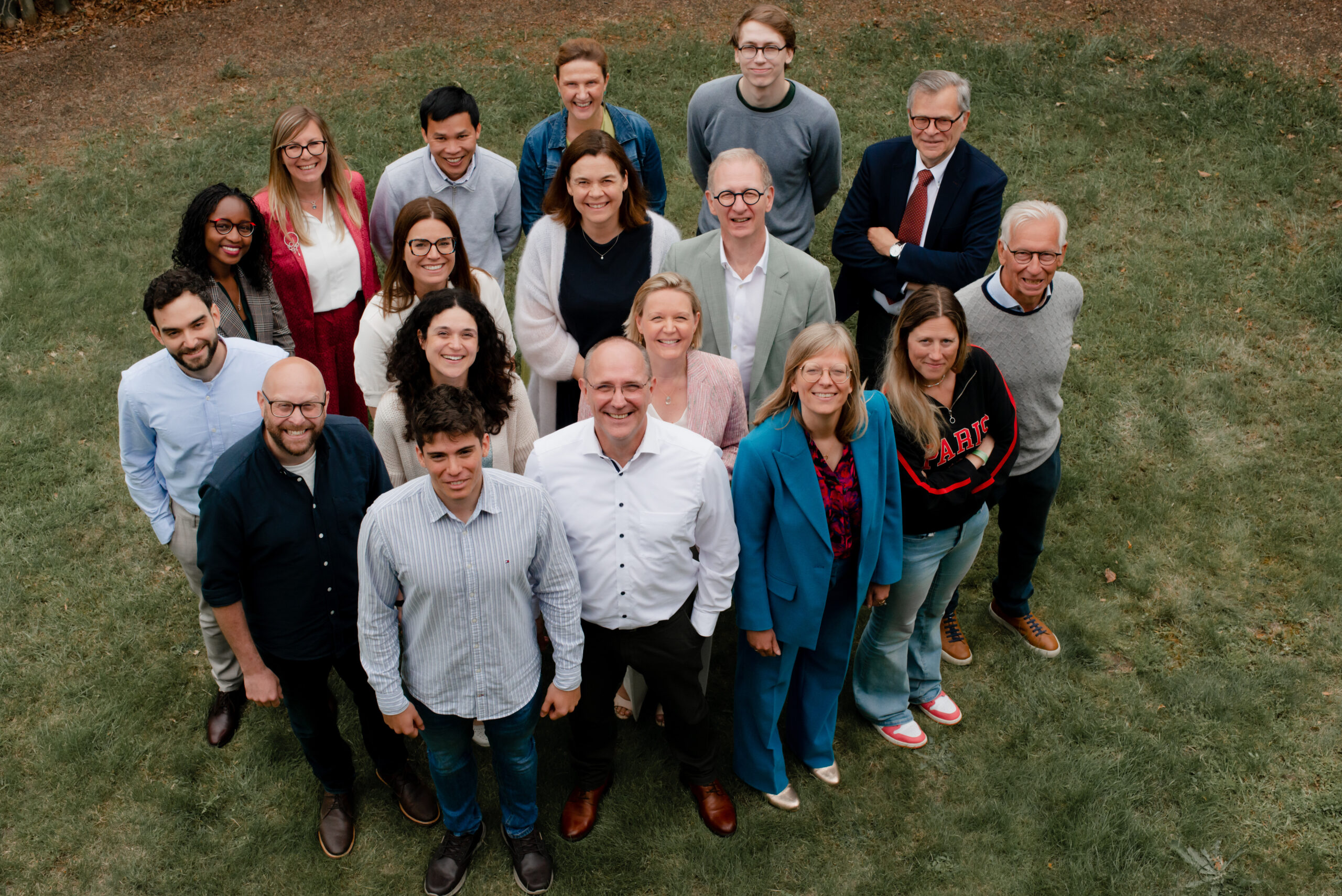End-of-Waste Status Applications
End-of-Waste Applications within the EU
With diminishing natural resources, it has become even more critical to prolong the lifecycle of materials through adoption of circular economy models. The re-use and recycle of materials can be severely restricted within the EU if the material exhibits waste status. To support recycling and re-use throughout the EU, EU legislation provides for substances or material that has become waste at the end of its life cycle to become a secondary raw material, subject to certain conditions.
As part of our guide to navigating waste recovering legislation and compliance, we will explain the most important procedures throughout the EU for handling recovered substances from waste in a regulatory context. In this post, we discuss determining the End-of-Waste status of recovered substances via applications to a competent authority.
For our guide on self-assessments of End-of-Waste status of recovered substances, click here!.
How can waste cease to be waste?
Substances classified as waste may cease to be waste when they have undergone a recovery operation and fulfil a number of criteria.
The Waste Framework Directive defines criteria at an EU-wide level. It also provides provisions for Member States to develop their own criteria under which recovered materials could cease to be waste. These are the so called End-of-Waste criteria.
The importance for recovery operators and recyclers of waste substances?
Recovery operators that process and upgrade waste material to a substance or product for the EU market need to determine and fulfil their compliance obligations. This can only be done if it is understood whether the substance or product has reached End-of-Waste status or should still be considered waste as the status determines whether relevant waste legislation (e.g. the Waste Framework Directive) still apply, whether other legislation and compliance obligations are relevant.
Determining the End-of-Waste Status
EU-wide regulation
The Waste Framework Directive specifies EU-wide product specific criteria. A recovered substance covered by, and complying with any of the EU-wide specific criteria would be deemed not to be waste across the EU. However, at present, only a limited number of substances would be covered by these criteria.
What about recovered substances not covered by EU-wide criteria?
The majority of recovered products handled within the EU are not covered at EU-level. Instead, End-of-Waste status is determined at national or regional level. Similarly to the EU-wide level, product specific criteria may also be established at this level. Should no relevant specific criteria exist, then the end-of-waste status of a material is evaluated according to the national or regional procedure.

The relevant procedure differs between member states and regions. The two primary methods of evaluation are a self-assessment conducted by the recovery operator, and a decision by the competent authority on the basis of an application.
In this post, we discuss, in further detail, End-of-Waste assessments via applications to competent authorities. To learn more about self-assessments, click here!
End-of-Waste Applications
Applications for the decision on the EoW status of a material are a tool used by competent authorities to ensure that waste materials, which have undergone a recovery process, satisfy the end-of-waste criteria defined in Articles 6(1) and 6(2) of the Waste Framework Directive.
Member states and regions may implement End-of-Waste applications in varying degrees. Whereas one authority may request that all recovered substances are assessed by the authority prior to granting of EoW status, another authority may only necessitate EoW applications for certain types of recovered materials.
The Application Process
The exact procedure and requirements are country/region specific. However, the main steps in an EoW application can be described as follows:
Regulatory compliance strategy development
The EoW status of a material in one member state/region does not indicate the same status in other regions. Therefore, it is necessary to determine which regions are relevant for the recovery operator.
In which regions will the recovery occur? To which regions will the product be supplied? Understanding, at an early stage, the requirements for a recovered material to achieve EoW status allows recovery operators to avoid surprising, time-consuming, and expensive hurdles in the process of bringing their recovered substance to market.
If the recovery operator still has a choice in which regions their activities will be conducted, it may be possible to avoid an EoW application altogether, in favour of another region with a self-assessment requirement or has established specific product criteria relevant for the operator. Therefore, reducing time and costs.
Information collection and data generation
Once the relevant regions have been determined, and the requirements of the EoW application known, the necessary information to support the application needs to be obtained. In the interest of ensuring the application is processed timely, and mitigating the risk that the assessment is negative based on providing inadequate information, it is necessary that the information is detailed, relevant, and supportive of the application.
Application preparation & submission
The necessary documentation is completed and the EoW application finalised. The exact documentation and requirements differ between regions, however, knowledge gained from the previous two steps will place the applicant in a good position to complete the full application.
To ensure the decision making on the application occurs timely, it is necessary to ensure that all required documents and supplementary material are provided to the authority and the correct processes are followed.
Decision development
Once the application is submitted to the relevant authority, the decision making process begins. The authority will assess the application. In some cases, the decision is solely based on the evidence supplied in the original application submission, whilst in others, further information may be requested.
A poorly prepared application will increase the effort required by the applicant during this step, increasing the time to receive a positive decision, or at worst, will result in a negative decision by the authority. Therefore, it is essential that the application is prepared adequately from the beginning!
The decision
The authority will issue a decision on the application. Should the decision be positive, and the material be considered to no longer be waste (i.e. End-of-Waste status), then material will no longer fall under the Waste Framework Directive and other waste legislation requirements. A reminder: the End-of-Waste status is only confirmed in the region in which the deciding authority has jurisdiction!
Should the decision be negative, (i.e. the authority has decided the evidence indicates the material is still waste), then the Waste Framework Directive and other waste legislation requirements still apply.
How Apeiron can help
Apeiron has extensive experience in supporting companies which handle and recover waste to produce useful and valuable substances and products as part of its Circular Economy business unit.
Apeiron can assist in all stages of End-of-Waste applications in member states and regions throughout the EU. Apeiron’s knowledge and expertise of EU, national, and regional regulations and processes enables our clients to streamline the application process, whilst avoiding the common pitfalls at each step in the application development. This allows Apeiron, to build together with its clients, a strong and convincing application to achieve clients’ sustainability goals and contribution towards the circular economy.
Still unsure if obtaining End-of-Waste status for your recovered substance is required? We also offer support to companies to help decide the best route forward for ensuring regulatory compliance of your recovered substance.
Like the sound of Apeiron?
We'd love to know more about you! We are always looking for people who are driven by passion.


